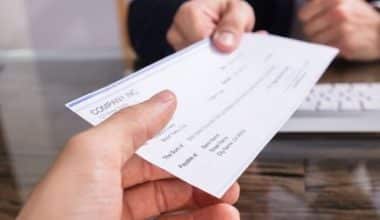Financial literacy is understanding and effectively using various financial skills, including personal financial management, budgeting, and investing. Taking a course on financial literacy can teach young adults to make smarter financial decisions. Currently, the online space provides young adults looking to improve their financial literacy with multiple courses, both free and paid.
Being financially literate from a young age gives individuals the tools and resources they need to be financially secure later in life. Hence, this article will give more insight into financial literacy, which online course you can take as a young adult, and general tips on improving your finances.
Financial Literacy Course
A financial literacy course instructs its participants in the fundamentals of good money management. Personal financial management, budgeting, investing, and saving are all examples of financial abilities that make up what is known as “financial literacy.”
The course is useful for creating lasting financial security. The topics covered in the course range from basic money management to more advanced topics like budgeting and saving.
What Are 3 Things to Learn in Financial Literacy?
There are multiple things one can learn from taking a financial literacy course; they include the following:
#1. Basics of Financial Literacy
The basics of financial literacy involve various skills such as personal financial management, budgeting, handling debt and credit, and investing. It also means comprehending financial principles and concepts such as the time value of money, compound interest, managing debt, and financial planning.
#2. Scope of Financial Literacy
Financial literacy can cover short-term financial strategy as well as long-term financial strategy. It encompasses knowing how investment decisions made today will impact tax liabilities in the future. Other products, such as mortgages, student loans, health insurance, and self-directed investment accounts, have also grown in importance. Thus, individuals must understand how to use them responsibly.
#3. Benefits of Financial Literacy
Financial literacy is crucial for managing day-to-day expenses and long-term budget forecasting. Holistically, the benefit of financial literacy is to empower individuals to make smarter decisions. Financial literacy can prevent devastating mistakes, prepare people for emergencies, help them reach their goals, and invoke confidence.
What Are the Five Areas of Financial Literacy?
The five areas of financial literacy heavily influence personal financial planning. Here’s a quick explanation of what each area entails:
- Earn: This part of the process involves learning how to generate income, how to negotiate salaries, and how to recognize new prospects for making money.
- Invest: This section focuses on establishing a budget, keeping track of costs, and understanding the distinction between necessities and luxuries.
- Saving: Financial planning includes setting aside money for unexpected expenses, putting money away for retirement, and buying stocks, bonds, or mutual funds.
- Borrowing Money: This aspect involves being familiar with the process of borrowing money, comparing different loans and interest rates, and keeping a good credit score.
- Protect: Safeguarding private data and keeping an eye on financial records to spot discrepancies or unusual activity is the focus of this section. It also entails securing adequate insurance coverage in case of an accident or illness.
Free Financial Literacy Course
Financial literacy is an essential aspect of personal finance, and many free courses are available to help adults learn about financial planning, budgeting, investing, and more. Here are some top free financial literacy courses for young adults:
Financial Planning for Young Adults on Coursera
The University of Illinois created this course in partnership with the CFP Board. It provides an introduction to financial planning concepts.
The topics handled in this free online financial literacy course include:
- Financial goal setting
- Budgeting
- Saving and investing
- Borrowing and credit
- Risk management
The course has eight modules that span a four-week timeline, and each module introduces a financial concept through videos and quizzes.
Hands-on Banking
Wells Fargo created the Hands-on Banking eLearning Center to provide free financial resources. These resources are available to anyone interested in managing their finances. The course hub includes financial materials for adults, young adults, and students customized by grade level.
Personal and Family Financial Planning on Coursera
The University of Florida and professor of family, youth, and community science Michael S. Gutter, Ph.D., were responsible for developing this course. In addition to covering the basics, the course expands on investing and risk management, among others. It was designed to encourage participants to critically evaluate and change their money habits.
Personal Finance 101: Everything You Need to Know on Udemy
This Udemy course contains everything you need to know about personal finance. The course includes 53 lectures and three hours’ worth of video content. It’s designed with beginners in mind, teaching practical skills from taxes to credit cards.
Personal Finance Planning on edX
Sugato Chakravarty, a professor of consumer economics and management at Purdue University, sponsors the Personal Finance Planning course. It contains four independent modules: credit, investments, insurance, and retirement.
Financial Literacy on Alison
Alison is the leading provider of free online classes and online learning and you can find a good financial literacy course on the platform. The course covers key topics like financial planning, budgeting, and investing.
Financial Literacy Education by InCharge
InCharge develops and distributes personal finance education free of charge to children and adults nationwide. The organization offers free financial literacy resources to teachers, K–12, college students, and adults. These are designed for individual study as well as in-person workshop experiences.
Smart About Money, NEFE
The National Endowment for Financial Education (NEFE) nonprofit is dedicated to financial empowerment. The NEFE’s Smart About Money (SAM) program is an expert-backed financial education resource free to all consumers.
SAM offers personal finance courses with quizzes, calculators, worksheets, and additional reading materials.
Financial Literacy Course for Young Adults
If you have young adults around you, it will be good to encourage them to take a financial literacy course or workshop. Various options include online courses like Financial Planning for Young Adults and in-person workshops like the Financial Basics workshop. These resources cover financial goal setting, saving and investing, budgeting, financial risk, borrowing, and credit.
The RBC WM Financial Literacy program for young adults is a good choice. The program is designed for individuals 16 or older and includes four main education focus areas with 20 learning modules. Since the program is advisor-led, those who participate gain from having a financial expert as their main information source during the learning sessions.
You can also provide access to additional financial literacy resources, such as Your Financial Toolkit, an online learning program providing financial information and tools for adults, or the Money Matters program, a free introductory financial literacy program for adult learners.
Free Online Financial Literacy Course
Several options are available for young adults looking for a free online financial literacy course. Here are some of the best sources:
- Brigham Young University offers free beginner, intermediate, and advanced-level personal finance courses, including video lessons and money-management assignments.
- ALISON offers an interactive financial literacy class that teaches you how to set up your accounts, budget, and work with taxes and government benefits.
- Udemy offers a free Personal Finance 101 course covering basic personal finance topics such as college savings, retirement planning, and credit cards. This course requires no prior knowledge of finance or statistics and includes concise online lectures.
- EVERFI offers a free online Financial Literacy course for high school students that teaches them how to make wise financial decisions to promote financial well-being over their lifetime. The course includes seven lessons that cover topics such as banking basics, budgeting, and consumer skills.
Things to consider when choosing a financial literacy course
- Some courses require prior knowledge of finance, while others are for beginners so consider your current skill level
- The financial topics the course will cover
- The course format.
- Consider whether the course is self-paced or instructor-led
- Go for courses that offer interactive features such as quizzes or assignments.
What Are the 3 Main Components of Financial Literacy?
There are multiple components of financial literacy, but the three main ones are:
- Budgeting: Budgeting is crucial to financial literacy as it helps manage money inflow and outflow. It involves creating a plan for spending and saving money to meet financial goals.
- Saving: Saving money is another essential component of financial literacy. It involves setting aside money for future expenses or emergencies. As having a savings plan helps to avoid debt and achieve financial goals.
- Investing: Investing is putting money into financial products with the expectation of generating a return. Understanding different investment options, such as stocks, bonds, and mutual funds, can help you decide where to invest your money.
Other components of financial literacy include:
- Understanding credit
- Managing debt
- Protecting against identity theft.
- Retirement planning:
- Setting and achieving financial goals
How Do I Teach Myself Financial Literacy?
Young adults who have an interest in financial literacy can teach themselves by enrolling in an online course and choosing one that is self-learning. You should also learn about saving, budgeting, investing, and making good financial decisions. Learn how these financial principles function together and how they can apply in real life. Real-life events make financial literacy more engaging.
Also, when learning about financial literacy, be patient. Understand that financial literacy is a process, not a destination. Don’t let your early mistakes demotivate you; instead, make sure to learn from them. The internet is a gold mine for knowledge, so use Internet resources to learn.
Financial literacy is not just related to knowledge but also includes attitudes, skills, and behaviors that are essential for making financial decisions based on personal circumstances. Therefore, lacking financial literacy can lead to several negative consequences, including poor financial decisions, large amounts of debt, and becoming victims of financial fraud, subprime mortgages, or high-interest rates. People who are financially illiterate are generally more vulnerable to financial fraud, and they may accumulate unsustainable debt burdens, leading to poor credit, bankruptcy, or housing foreclosure.
How Can I Be Financially Smart?
Here are some tips on how you can improve your financial situation:
- Before making any changes, you must accurately understand your finances. Begin by keeping track of your income and expenses
- Examine your finances objectively.
- Determine your key priorities and create a budget to suit your requirements.
- Determine your financial goals, such as debt repayment, saving for a large purchase, or becoming more financially stable.
- Keep track of your costs.
- Set up a savings account and put any extra money into it.
- Be a wise shopper. When making large purchases, look for the best offers to save money.
- To avoid debt, only use your credit card for necessary purchases.
- Look for a financial literacy course you can take online
- Reading books on personal finance can help improve financial literacy.
- Listening to podcasts can also be a great resource for financial literacy.
- Subscribe to financial content to keep yourself up to date on the latest trends and news in finance.
- Talk to a financial professional who can guide you on investing, budgeting, and other financial topics.
Why is Financial Literacy Difficult to Achieve?
Achieving a level of financial literacy demands a significant investment of both time and effort in the form of education. It is not something that can be learned in a single sitting, and in order to become proficient, a significant amount of work and commitment is required.
In schools, the curriculum for financial literacy frequently faces competition from other courses, and it is possible that it is not given priority. Indicators of financial literacy should be achieved at the school level, and governments ought to play a role in both boosting financing for this endeavor and training and certifying teachers.
What Is the Best Degree for Financial Literacy?
There is actually no specific degree required to achieve financial literacy, however, there are many courses and resources available to improve one’s financial literacy skills, and a degree in finance, accounting, economics, or business can be helpful. Also, it can be beneficial to acquire certifications with financial bodies like the Certified Financial Planner (CFP) or Chartered Financial Analyst (CFA).
Related Articles
- TOP FINANCIAL LITERACY BOOKS IN 2023
- Financial literacy: All you need to know (+free ebooks)
- FINANCIAL EDUCATION: Importance and How to Get Started (+ free courses)
- DEBT FREE: Tips To Live A Debt-Free Life
- DEBT SNOWBALL METHOD: How It Works (Pros & Cons)






